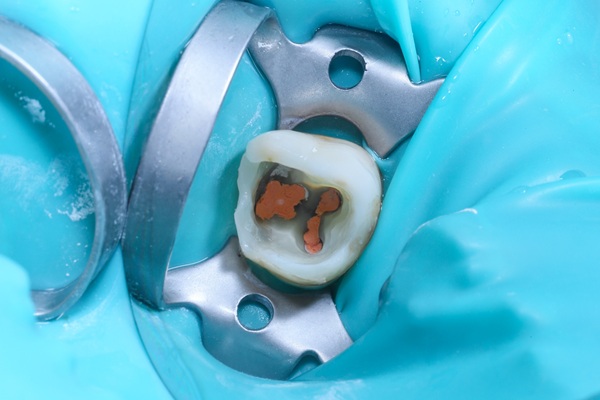Consider Root Canal Retreatment Before Opting for Tooth Extraction

A root canal endodontist can help repair and then save an infected or badly damaged tooth. With proper care, teeth that have had root canal treatment can be kept for a lifetime. But sometimes teeth can heal improperly and become painful or diseased after some months or even years after treatment. As much as this may be unfortunate, if it happens, you can still save your tooth with retreatment. An additional procedure can reduce discomfort or dental pain and promote healing. If you feel any pain or discomfort in a tooth that was previously treated, take the time to talk to an endodontist about retreatment.
Root canal endodontist and retreatment
As with any medical or dental procedure, the tooth may not heal as anticipated after initial treatment. This may be due to several reasons. It may be because curved or narrow canals were not treated during the first procedure or complicated canal anatomy was not detected. It can happen if the crown placement was delayed after treatment.
The restoration may also not manage to prevent salivary contamination to the inside of the tooth. There are also a variety of new problems that can jeopardize a tooth that was treated successfully. These include a fracture or crack in the tooth or a new infection in the tooth because of new decay. When a person opted for the original root canal treatment, the dentist probably informed the patient that the only other treatment option was to have the tooth extracted. When it comes to this new problem, if a person is experiencing pain depending on the cause, the dentist may recommend retreatment.
Sometimes, endodontic surgery can be suggested in conjunction with retreatment. Aside from endodontic retreatment or surgery, the other option is to have the tooth extracted. Medical practitioners usually discuss all the treatment options with patients. This is done before recommending the appropriate treatment.
Root canal retreatment vs. tooth extraction
Extracting the tooth is an alternative to root canal retreatment. An extracted tooth has to be replaced with a bridge, implant or removable partial denture. This is often done because it helps restore chewing function and prevents adjacent teeth from shifting. But these options require extensive dental procedures or surgery on the adjacent healthy teeth.
This can make them more time-consuming and costly than retreatment and restoration of the natural tooth. Tooth replacement can be effective. But nothing is as good as a person’s natural tooth. A person who chooses retreatment can end up having a functioning, healthy natural tooth for many years to come.
Takeaway
Sometimes, even after the nerve has been removed from a tooth, it may not heal as expected. The discomfort that a person may feel long after the root canal has healed may be an indicator that the tooth needs endodontic treatment. Often, to save a tooth, dentists recommend retreatment. Other alternatives include endodontic surgery or the extraction of the tooth.
But there are several reasons why a person may choose root canal retreatment rather than a tooth extraction. Retreatment may be more affordable and less time-consuming. It also gives a patient a second chance to save the tooth. If you think that a tooth needs retreatment, schedule an appointment with your dentist for evaluation.
Request an appointment here: https://www.sheats-endo.com or call Sheats Endodontic Group at (615) 526-2495 for an appointment in our Nashville office.
Recent Posts
An endodontist is a dentist who has additional training in diagnosing and treating issues that affect the inner part of the tooth, called the pulp. These dentists often spend most of their time performing procedures like root canals on teeth with damaged pulped chambers. A root canal involves going inside a tooth and removing soft…
A root canal specialist can correct any problems that affect the pulp cavity. The internal parts of the tooth affect its health. Issues that occur will need immediate treatment. Here are the signs that you may need treatment from your root canal specialist.This happens when the individual consumes hot or cold foods and drinks. The…
Root canal therapy can treat and preserve natural teeth affected by deep tooth decay, infection, inflammation, or traumatic injury. The treatment focuses on removing the compromised tissue within the tooth, protecting surrounding teeth, and maintaining long-term oral health. That way, patients can avoid having to go through the trouble of getting tooth replacements that require…
Do you have cracked teeth? Read on to learn more about treatment for cracked teeth. Such fractures need the services of an endodontist, a dental professional with many years of experience treating tooth pain and root canals. The American Association of Endodontists points out that timely intervention is important if you wish to save a…


